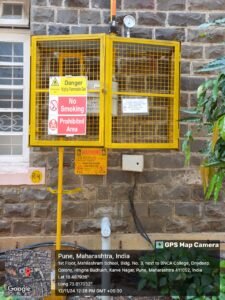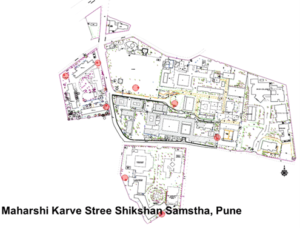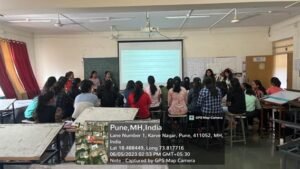- Home
- About Us
- Programs
- FRA-Fee Structure
- Accreditation
- Research
- BNCA Cells
- International Cell
- UNAI
- Universal Design Cell
- Innovation and Incubation Cell
- Archineering Cell
- Environment Cell
- Publication Cell
- IQAC (Internal Quality Assurance Cell)
- BNCA Consultancy Cell ( BCC )
- CEL (Center For Ecological Landscapes)
- Universal Human Values
- SES RE CELL
- Structure Cell
- Center For Cultural Studies
- Teaching+Learning Laboratory
- Career Counselling & Guidance Cell
- Center for Interdisciplinary Studies in Art and Architecture.
- Students
- Infrastructure
- Library
- IT Infrastructure and Computer Labs
- Digital Fabrication Lab
- Wood Working Lab
- Lab for Environmental and Simulation [LEDS]
- Landscape Research Lab
- Material Museum
- Construction Lab
- Survey And Leveling Lab
- Language Lab
- Studios
- Photography Lab
- Clay Studio
- Immerssive Design Lab
- Acoustic Lab
- Board Room
- Auditorium
- Lighting Lab
- Research
- Contact Us
Environment Cell
BNCA is part of a larger campus under Maharshi Karve Stree Shikshan Samstha, a torchbearer in education and social reforms since its inception 125 years ago. The institute aims to establish the highest standard for a more environmentally responsible society and has already implemented several projects to reduce its carbon footprint.
Environment Policy- Click Here
Plastic Ban Policy- Click Here
Alternate Energy Resources
MKSSS, in its quest to set up a benchmark for a more environment-conscious society, has implemented various projects to reduce its environmental impact. It seeks to set an example for others by adopting sustainable practices in its operations and leading them.
- Solar Energy
The solar capacity of solar photovoltaic panels installed on the BNCA rooftop is 90.4 KW. The overall installed capacity at the MKSSS campus is 600KW with the net metering system in place. The solar system has been commissioned and in operation since November 2021.


- Wheeling to the Grid
Power generated on the campus using photovoltaic plants is used within the campus, and excess is exported to the grid. A central net meter records the campus’s generation, import, and export of solar power. Solar power reduces the demand for purchased electricity, thereby reducing carbon emissions. The solar generation capacity of the BNCA solar plant is 15.06% of the total solar power generation in the MKSSS campus.


- Sensor-based energy conservation
BNCA has occupancy sensors installed at strategic locations like staircases and toilets to respond to energy conservation measures.


- Use of LED bulbs and Energy Saving equipment
LED tube lights are installed in most parts of the building, and the old T5 tube lights in the remaining parts will be replaced with LED tube lights. Most of the equipment in BNCA is energy-efficient BEE-labeled.


- Biogas plant as an alternative fuel to LPG
BNCA utilizes the common facility of a biogas plant installed on the MKSSS Campus. The biogas plant can process 500kg of organic waste daily. The gas generated is utilized to fuel 2 cylinders each of approximately 14 kg daily.


- Maharashtra Natural Gas as an alternative to LPG for cooking
Natural gas connections were installed at hostels and canteens on the MKSSS campus in August 2024. Replacing LPG with natural gas will reduce greenhouse gas emissions by 85.5%.


Water conservation is another cornerstone of the institute’s sustainability efforts. A rainwater harvesting system with a capacity of 4,20,000 litres ensures borewells remain recharged throughout the year. Additionally, a wastewater treatment plant recycles 2 lakh litres of grey water daily, which is then reused for landscaping and flushing purposes. Combined, recycled wastewater and harvested rainwater contribute 3 lakh Litres daily, fulfilling 37% of the campus’s water requirements. Water saving low-flow fixtures are used in most of the toilet blocks in the BNCA building.
- Rainwater harvesting
The MKSSS campus has a fully operational rainwater harvesting system. The harvested rainwater gets collected in chambers to recharge the bore wells on the campus. This helps to keep the bore wells recharged throughout the year and increases the water table. The rainwater harvested through the bore wells is used further for landscaping and irrigation purposes.


- Borewell/Open well recharge
The stormwater in the campus is collected through channels and led into recharge pits. The landscape water requirement of irrigation is met through water recharged in these bore wells at the campus level.

- Wastewater / Grey water treatment plant
A wastewater treatment plant installed near the hostel efficiently treats and recycles 2,00,000 lit. of grey water, thereby reducing the demand for fresh water. The treated water is used for flushing purposes in the hostels and for irrigation.


- Water conservation Awareness drives
World Water Day 22 March 2021

BNCA commits to sustainability and the efforts are reflected in various activities and programs aimed at reducing waste, conserving energy, and enhancing green spaces. From tree plantation drives to waste management programs, these efforts improve the campus environment and help instill a sense of responsibility among students, staff, and the community. Through these activities, the college aims to serve as a model for sustainable practices, inspiring stakeholders to adopt eco-conscious habits in their daily lives.
Ban on single-use plastic – BNCA strictly implements the ban on disposable plastic and thermocol usage on the campus. Steel plates, Paper plates, and cups are used in the canteen.

Restricted Vehicular traffic – Vehicle traffic on campus is limited to the main entry road and parking lots. The campus is pedestrian-friendly, with well-defined walkways throughout. The campus provides a secure and beautiful setting for walking and participating in outdoor educational activities. An electric cart is used if required for transportation within the campus.



BNCA has provided vehicle charging points for electric vehicles of the staff and students to encourage using EV for commuting to college.


QR coding of campus trees– Separate unique QR codes and URLs are developed for individual trees giving information about that tree at a single click. The project aims to promote awareness of the importance of trees in urban ecology and biodiversity in an educational campus and to spread information about trees in society with the use of easy and effective technological mediums.


Tree Plantation Drive –The NSS team of BNCA organizes tree plantation activity regularly. Enthusiastic participation from the students and the staff not only adds greenery to the campus but also instills a sense of unity and responsibility towards the environment among the participants.



Cleanliness Drive – The NSS team of BNCA organizes cleanliness drives each year. The event not only promotes a sense of responsibility and ownership among the students but also fosters a collective spirit of cleanliness within the college premises.




Wood waste workshop- The wood waste workshop was organized at BNCA to instill awareness of sustainable material use in design and to demonstrate the potential of upcycling waste materials in architecture and interior design. Students gained hands-on experience in woodworking and material reuse. The workshop successfully demonstrated how waste materials could be transformed into valuable products.



Workshop – ‘Know your Carbon Footprint’ – The Department of Environmental Architecture in association with the ‘Goethe Institute, organized a workshop on ‘Know your Carbon Footprint’ at BNCA on the ‘World Energy Conservation Day’ on 14th Dec 2022. The workshop helped the students understand how to calculate their personal carbon footprint and how they can reduce the same by making sustainable choices and modifications in their lifestyles.


Environment awareness drive
World Environment Day – The Department of Environmental Architecture carried out an awareness drive to educate students about the serious problems due to plastic pollution. Students were encouraged to take a pledge to not use disposable plastic bottles and to carry cloth/paper bags.


Webinar Series
Towards low-carbon climate resilience: how architects can deliver change. The Department of Environmental Architecture and Planning, BNCA in collaboration with the Indian Network on Ethics and Climate Change (INECC) and LAYA recently organized an online Webinar Series on How Architects Can Deliver Change under its Towards Low-Carbon Climate Resilience initiative. The three-part online series was conducted to increase awareness about sustainable architecture, its impact on the environment, and climate change.



Clean Air for blue skies webinar
International Day of Clean Air for blue skies

World Water Day 22 March 2021

International Ozone Day – Awareness Drive

World Environment Day – E-waste Collection Drive


National Symposium on Sustainable Development
On 4th October 2022, a national symposium was held in BNCA on the topic of Sustainable Development. It consisted of two-panel discussions on the topics of Youth Action & SDGs and Current Challenges and SDGs.


Green Campus Initiatives
BNCA commits to sustainability and the efforts are reflected in various activities and programs aimed at reducing waste, conserving energy, and enhancing green spaces. From tree plantation drives to waste management programs, these efforts improve the campus environment and help instill a sense of responsibility among students, staff, and the community. Through these activities, the college aims to serve as a model for sustainable practices, inspiring stakeholders to adopt eco-conscious habits in their daily lives.
- Ban on single-use plastic – BNCA strictly implements the ban on disposable plastic and thermocol usage on the campus. Steel plates, Paper plates, and cups are used in the canteen.
- Restricted Vehicular traffic – Vehicle traffic on campus is limited to the main entry road and parking lots. The campus is pedestrian-friendly, with well-defined walkways throughout. The campus provides a secure and beautiful setting for walking and participating in outdoor educational activities.
- An electric cart is used if required for transportation within the campus.
- BNCA has provided vehicle charging points for electric vehicles of the staff and students to encourage using EV for commuting to college.
- QR coding of campus trees– Separate unique QR codes and URLs are developed for individual trees giving information about that tree at a single click. The project aims to promote awareness of the importance of trees in urban ecology and biodiversity in an educational campus and to spread information about trees in society with the use of easy and effective technological mediums.
- Tree Plantation Drive
The NSS team of BNCA organizes tree plantation activity regularly. Enthusiastic participation from the students and the staff not only adds greenery to the campus but also instills a sense of unity and responsibility towards the environment among the participants.
- Cleanliness Drive
The NSS team of BNCA organizes cleanliness drives each year. The event not only promotes a sense of responsibility and ownership among the students but also fosters a collective spirit of cleanliness within the college premises
- ‘Wood waste workshop’
The wood waste workshop was organized at BNCA to instill awareness of sustainable material use in design and to demonstrate the potential of upcycling waste materials in architecture and interior design. Students gained hands-on experience in woodworking and material reuse. The workshop successfully demonstrated how waste materials could be transformed into valuable products.
- Workshop – ‘Know your Carbon Footprint’
The Department of Environmental Architecture in association with the ‘Goethe Institute, organized a workshop on ‘Know your Carbon Footprint’ at BNCA on the ‘World Energy Conservation Day’ on 14th Dec 2022. The workshop helped the students understand how to calculate their personal carbon footprint and how they can reduce the same by making sustainable choices and modifications in their lifestyles.
- Environment awareness drive
World Environment Day – The Department of Environmental Architecture carried out an awareness drive to educate students about the serious problems due to plastic pollution. Students were encouraged to take a pledge to not use disposable plastic bottles and to carry cloth/paper bags.
- Webinar Series (9, 16, 23 April 2021)
Towards low-carbon climate resilience: how architects can deliver change
The Department of Environmental Architecture and Planning, BNCA in collaboration with the Indian Network on Ethics and Climate Change (INECC) and LAYA recently organized an online Webinar Series on How Architects Can Deliver Change under its Towards Low-Carbon Climate Resilience initiative. The three-part online series was conducted to increase awareness about sustainable architecture, its impact on the environment, and climate change.
- Clean Air for blue skies webinar (4th 2021)
International Day of Clean Air for blue skies
- World Water Day 22 March 2021
- International Ozone Day – 16 to 23 September 2020 Awareness Drive
- World Environment Day 5 June 2019 – E-waste Collection Drive
- National Symposium on Sustainable Development
On 4th October 2022, a national symposium was held in BNCA on the topic of Sustainable Development. It consisted of two-panel discussions on the topics of Youth Action & SDGs and Current Challenges and SDGs.
Management of various types of degradable and non-degradable waste in the Institution
The institute emphasizes holistic waste, water, and landscape management. Waste segregation at the source ensures effective processing. Leftover vegetable and food waste are treated in a 660 kg-capacity biogas plant daily. This helps reduce LPG consumption for cooking. Additionally, several vermicomposting pits are maintained across the campus, converting 12 tons of organic landscape waste into nutrient-rich manure annually.
Segregation and management of biodegradable waste
Wet and dry waste is segregated at the source. Total organic waste is managed within the site with the help of a Bio-gas plant and vermicompost pits. The biogas plant treats wet kitchen and food waste from the canteen and hotel mess. Landscape waste is treated in the vermicompost pits to make compost.


- Vermicompost pits

- Biogas plant


Management of non-degradable waste
Non-biodegradable waste is efficiently managed. Dry waste is collected, sorted, and sent to recycling agencies. Sanitary waste is collected hygienically and disposed of safely using an incinerator. E-waste is regularly collected and sorted. Reusable components are retained, and the remaining materials are sent to authorized agencies for recycling in compliance with NPCB norms.
- Dry waste management – Dry waste is collected separately and segregated at a central location on the campus. Paper, plastic, glass, metal scrap, etc. are segregated and given to the respective recyclers regularly.


- Biomedical waste management– Biomedical waste (sanitary napkins) is collected daily through an innovative chute system at the hostel level and separate dustbins in toilets at the institute level. Collected napkins are processed in the incinerator, where they are burnt safely in closure. The incinerator on average can burn 600 napkins per day. The ash remaining after burning is mixed with fertilizers that make good manure.


- E-waste management- E-waste is collected at the institute level. Useful parts are kept aside for future use and other e-waste is sent to authorized agencies for dismantling and recycling as per NPCB norms. A permanent collection point for E-waste is set up in the college to facilitate the collection of e-waste from students and staff.




